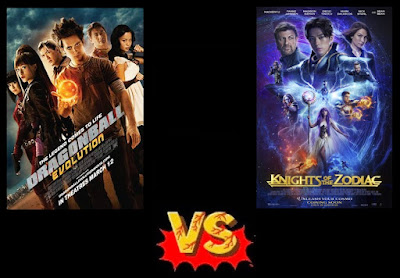Born on April 5, 1955 in Kiyosu, Aichi, Akira Toriyama was your normal, everday child growing up, outside of his fondness for drawing, especially after seeing the 1961 Disney film 101 Dalmatians. Naturally, while in elementary school he was a fan of anime & manga, but once he moved on to middle school & beyond he actually stopped reading manga & watching anime, instead being more interested in live-action TV & film, especially tokusatsu productions like Ultraman & Gamera; this meant that he more or less missed out on experiencing the massive evolution manga was seeing throughout the late 60s & most of the 70s. While he would still draw his own manga while growing up, he eventually graduated & decided to enter the work force, despite his family wanting him to continue his education. Toriyama would work at an advertising agency for three years, designing posters, but eventually grew sick & tired of the job, especially things like the dress code & the need to come into work early in the morning, neither of which he was big on, as he preferred to dress more casually & wasn't a "morning person".
So, at age 23, Akira Toriyama decided to try his hand at submitting manga one-shots in an effort to make some money, and he found a consistent home over at Weekly Shonen Jump & its monthly Newcomer Award submissions. His initial one-shots didn't really find an audience, usually coming in near or dead last, but Toriyama's stubbornness made him want to keep trying, and he luckily had the encouragement of Kazuhiko Torishima, his editor at Jump. Eventually, it was decided that Toriyama should debut a proper serialization, which resulted in the 1980 gag manga Dr. Slump... and the rest is history. Akira Toriyama would become a household name in manga almost instantly after Dr. Slump's debut, and after he ended that he became an even bigger star with 1984's Dragon Ball, where he combined his love of comedy with action that was influenced by his fellow Jump mangaka at the time (he admitted to not reading manga again until he started submitting his own to Jump, so his contemporaries were his primary influences), creating one of the most influential, cherished, & beloved manga the world over. Following Dragon Ball's end in 1995 Akira Toriyama would only make the occasional short-run manga, content to mainly continue doing character design work for stuff like videos games (Dragon Quest, Tobal, Blue Dragon, etc.) & helping conceive of & produce later Dragon Ball content, to varying extents. Unfortunately, Akira Toriyama passed away on March 1, 2024 at the age of 68 of an acute subdermal hematoma, with information slowly coming out that Toriyama had been ill for the prior year, the long-term effect of how he took care of himself over the decades, by his own admission; for example, he was known to be a consistent smoker throughout his life.
To honor the legacy & memory of someone as incalculably influential as Akira Toriyama, while still staying true to what this blog's about, let's take a look at four OVAs that he either worked on in some fashion, or at least were based on his manga. Yeah, most of it's going to be related to Dragon Ball (though we'll be diving deep into the weeds, even for that franchise!), but our first entry for this volume of OM, OM, OVA! isn't.



